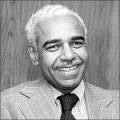 A new study led by Shervin Assari, an assistant professor of family medicine at the Charles R. Drew University of Medicine and Science in Los Angeles, finds that people with a higher level of educational attainment finds tend to find jobs where there is less exposure to environmental hazards including second-hand smoke. However, the study found that this benefit of higher education is different for Blacks and Whites.
A new study led by Shervin Assari, an assistant professor of family medicine at the Charles R. Drew University of Medicine and Science in Los Angeles, finds that people with a higher level of educational attainment finds tend to find jobs where there is less exposure to environmental hazards including second-hand smoke. However, the study found that this benefit of higher education is different for Blacks and Whites.
Researchers looked at data from slightly less than 16,000 employed adults who participated in the 2015 National Health Interview Survey. The average age of those surveyed was 43. Participants had an average of 15.8 years of education. The researchers found that participants with a college education were less likely to be employed in jobs where they were exposed to second-hand smoke. But Blacks with a college-education were significantly more likely than their educated White peers to be in jobs that exposed them to second-hand smoke. This health hazard has been shown to increase the risk of heart disease, stroke, and cancer.
The authors state that “there is a need for conducting ‘impact analysis’ of tobacco control policies, smoke-free laws, and marketing regulatory laws on disparities in exposure to second-hand smoke across social groups based on race, ethnicity, and socio-economic status.”
The full study, “Unequal Effects of Educational Attainment on Workplace Exposure to Second-Hand Smoke by Race and Ethnicity; Minorities’ Diminished Returns in the National Health Interview Survey,” was published on the website of the Journal of Medical Research and Innovation. It may be accessed here.









